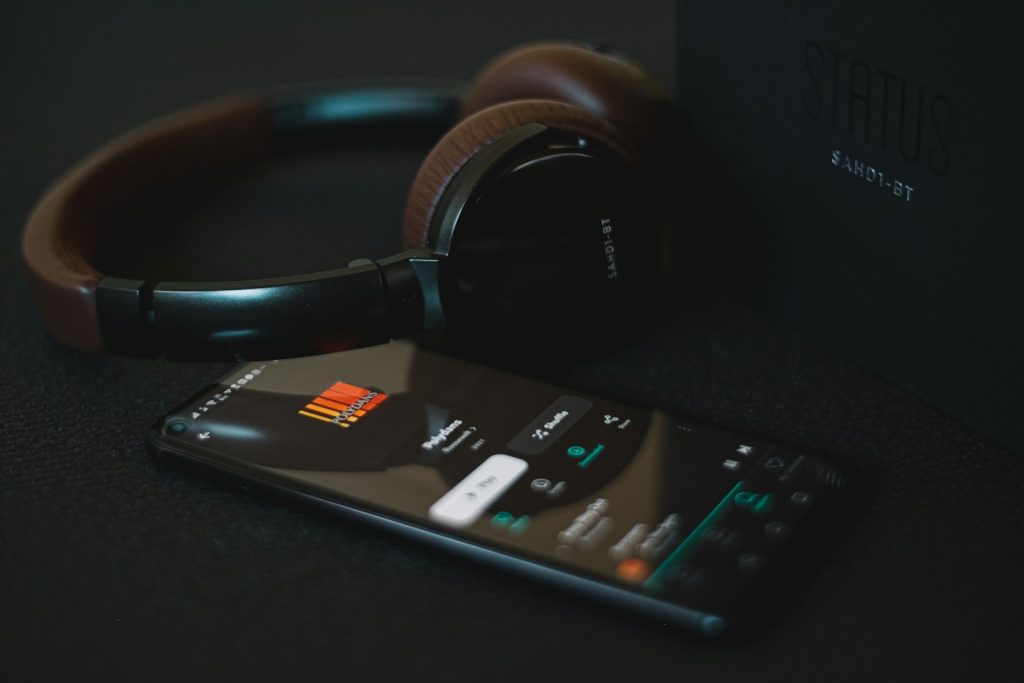 The Nigerian music industry has witnessed significant growth, driven largely by digital technology. This expansion, while advantageous, has introduced complex legal challenges, particularly in the realm of copyright protection for artists and record labels. The digital format’s ease of replication, manipulation, reproduction, and dissemination complicates the enforcement of copyright laws. As digital streaming services become the primary mode of music consumption, finding a balance between copyright protection and digital innovation is becoming very important.
The Nigerian music industry has witnessed significant growth, driven largely by digital technology. This expansion, while advantageous, has introduced complex legal challenges, particularly in the realm of copyright protection for artists and record labels. The digital format’s ease of replication, manipulation, reproduction, and dissemination complicates the enforcement of copyright laws. As digital streaming services become the primary mode of music consumption, finding a balance between copyright protection and digital innovation is becoming very important.
This paper delves into the relationship between music copyright laws in Nigeria and the evolving digital streaming landscape. It highlights the legal frameworks governing copyright protection for artists and analyzes the interaction between these laws and the operational dynamics of digital streaming platforms. The discussion explores challenges, opportunities, and potential reforms to ensure equitable rights for artists in the digital era.
The Legal Framework for Music Copyright in Nigeria
Nigeria’s copyright law is governed by the Copyright Act of 2022, which replaced the previous Copyright Act Cap C28 Laws of the Federation of Nigeria 2004. This Act provides the legal foundation for copyright protection in the music industry, ensuring composers, lyricists, and performers have exclusive rights to their creations, including reproduction, performance, and distribution.
Key provisions of the Copyright Act relevant to music copyright in Nigeria include:
- Original Works: The Act protects original musical works, including compositions, lyrics, and arrangements created by Nigerian musicians.
- Ownership and Rights: Creators of musical works are granted exclusive rights to reproduce, distribute, perform, and communicate their music to the public.
- Duration of Protection: Copyright protection lasts for the creator’s lifetime plus 70 years posthumously. For works created under government direction or control, protection lasts for 50 years after the work’s public release or creation.
- Registration: While not mandatory, creators can voluntarily register their musical works with the Nigerian Copyright Commission to establish evidence of ownership.
- Collective Management Organizations (CMOs): CMOs like the Copyright Society of Nigeria (COSON) and the Musical Copyright Society Nigeria (MCSN) administer and license the rights of music creators, negotiating rights and distributing royalties.
- Enforcement: The Act provides legal remedies for copyright infringement, including injunctions, damages, and seizure of infringing materials. Rights holders can seek redress through civil litigation or criminal prosecution.
- Digital Environment: The Act addresses digital rights management (DRM), online infringement, and internet service provider (ISP) liability.
- International Treaties: Nigeria’s copyright laws and enforcement practices are influenced by international treaties such as the Berne Convention and the Agreement on Trade-Related Aspects of Intellectual Property Rights (TRIPS).
Balancing Music Copyright with Digital Innovation
Balancing copyright protection with digital innovation involves implementing policies and practices that encourage innovation while safeguarding musicians’ rights. Several approaches have been proposed such as:
- Strengthening Copyright Laws: Enforcing existing copyright laws through DRM technologies and updating them to address digital challenges can provide better protection for musicians.
- Royalty Distribution: Clearer guidelines on royalty distribution mechanisms are needed to ensure artists receive fair compensation. Encouraging collective management can enhance royalty negotiations on behalf of artists.
- Education and Awareness: Educating musicians and the public about copyright laws and respecting intellectual property rights can foster a culture of compliance.
- Collaboration Between Stakeholders: Collaboration between musicians, digital platforms, policymakers, and enforcement agencies can lead to effective solutions benefiting all parties.
- Licensing Agreements: Establishing clear and fair licensing agreements between musicians and digital platforms ensures proper compensation for the use of music while allowing digital innovation to flourish.
- Technology Solutions: Investing in technology solutions like DRM systems can help protect music copyrights in the digital environment.
- Support for Local Artists: Providing resources for local musicians to create and distribute their music can strengthen Nigeria’s music industry and reduce reliance on foreign content.
By implementing these strategies, Nigeria can balance music copyright protection with digital innovation, fostering a thriving music industry that benefits both creators and consumers.
Digital Streaming Services and Copyright Challenges
The digital streaming landscape presents both challenges and opportunities for Nigerian musicians. While platforms like Spotify, Apple Music, and Boomplay offer global audiences and new revenue streams, concerns about fair compensation, royalty collection, piracy, and copyright infringement persists. Developing a robust legal framework, promoting local streaming platforms, and educating musicians about their rights can help address these issues.
Remedies for Infringement
In the music industry, copyright infringement occurs when someone uses a song or part of a song without permission. In Nigeria, both civil and criminal penalties apply to copyright infringement. Remedies include:
- Injunctions: Temporary or permanent injunctions to stop ongoing or future infringement.
- Confiscation and Destruction: Seizure and destruction of infringing works.
- Damages: Seeking actual damages and profits from the offender.
- Litigation Costs: Recovery of litigation costs.
- Criminal Penalties: Prosecution for copyright violations done for competitive advantage or financial gain.
Music copyright infringement is a global issue, and disputes can also be settled out of court through various dispute resolution mechanisms.
Balancing artist rights with the operations of digital streaming services in Nigeria requires a multifaceted approach involving legal reform, industry cooperation, and education. By aligning Nigeria’s copyright laws with the digital age’s realities, the country can protect artists’ rights while fostering a vibrant and sustainable digital music industry. Musicians and rights holders must stay informed about the legal framework and seek legal advice to protect their intellectual property effectively.
This article provides a general overview of the subject. Please contact us directly for any specific legal assistance.
